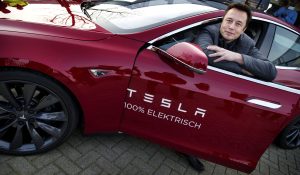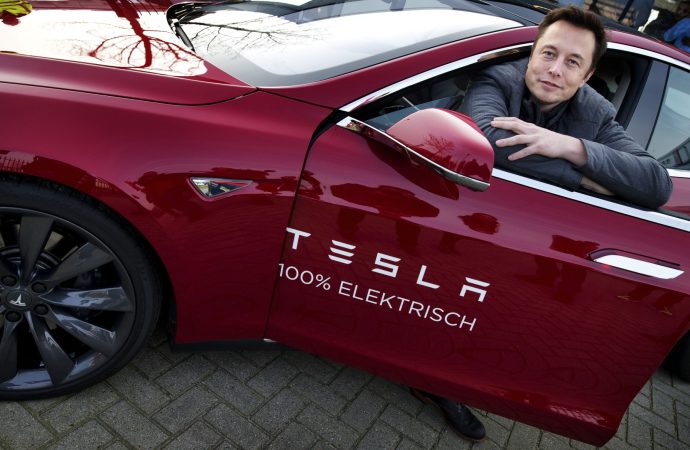In recent years, Tesla has emerged as a pioneering force in the automotive industry, reshaping the landscape with its groundbreaking electric vehicles (EVs) and innovative energy solutions. Beyond just creating cars, Tesla envisions a future where sustainable energy sources power not only transportation but also homes and industries. This article delves into the revolutionary technology
In recent years, Tesla has emerged as a pioneering force in the automotive industry, reshaping the landscape with its groundbreaking electric vehicles (EVs) and innovative energy solutions. Beyond just creating cars, Tesla envisions a future where sustainable energy sources power not only transportation but also homes and industries. This article delves into the revolutionary technology driving Tesla’s vision, examining its impact on the automotive sector and beyond.
Tesla’s Electric Vehicles: Beyond Zero Emissions
Tesla’s electric vehicles are at the forefront of the company’s technological revolution. By eschewing traditional combustion engines in favor of electric motors, Tesla has effectively eliminated tailpipe emissions, contributing significantly to the fight against climate change. The flagship Model S, Model 3, Model X, and Model Y have garnered widespread acclaim not only for their environmental benefits but also for their performance and design.
Battery Technology: The Heart of Tesla’s Innovation

Elon Musk, co-founder and CEO of American
At the core of Tesla’s electric vehicles lies its advanced battery technology. Tesla’s Gigafactories churn out lithium-ion batteries at an unprecedented scale, driving down costs and making EVs more accessible to the masses. Moreover, Tesla’s focus on research and development has led to breakthroughs in battery efficiency and longevity, addressing concerns regarding range anxiety and battery degradation.
Autonomous Driving: Redefining Mobility
Tesla’s Autopilot and Full Self-Driving (FSD) capabilities represent a significant leap forward in autonomous driving technology. Through a combination of sensors, cameras, and powerful AI algorithms, Tesla vehicles can navigate roads, interpret traffic signals, and even execute lane changes with minimal human intervention. While the technology is still evolving and regulatory hurdles remain, Tesla’s strides towards full autonomy promise to revolutionize transportation, making it safer, more efficient, and accessible to all.
Investment in Infrastructure: Accelerating the Transition
A key driver behind Tesla’s success lies in its strategic investments in infrastructure. The company’s expansive network of Supercharger stations provides fast and convenient charging solutions for Tesla owners, alleviating concerns about range limitations and charging accessibility. Moreover, Tesla’s partnerships with governments and businesses to expand charging infrastructure globally underscore its commitment to facilitating the transition to electric mobility. As governments around the world enact policies to incentivize electric vehicle adoption and reduce carbon emissions, Tesla’s investment in infrastructure positions it as a leader in driving this transition forward, paving the way for widespread adoption of sustainable transportation solutions.
The Ripple Effect: Influencing Industry Trends
Tesla’s impact extends far beyond its own operations, shaping industry trends and influencing competitors to embrace electric mobility and renewable energy solutions. The success of Tesla’s electric vehicles has prompted traditional automakers to accelerate their electrification efforts, with many announcing ambitious plans to electrify their vehicle lineups. Additionally, Tesla’s open-sourcing of its patents related to electric vehicle technology reflects its commitment to advancing the industry as a whole, encouraging collaboration and innovation towards a common goal of sustainability. As Tesla continues to push the boundaries of what’s possible, its ripple effect on the automotive and energy sectors reinforces its status as a catalyst for change in the pursuit of a cleaner, greener future.
Beyond transportation, Tesla aims to disrupt the energy sector with its suite of renewable energy solutions. The Tesla Powerwall, a rechargeable lithium-ion battery, enables homeowners to store excess solar energy for use during peak demand or in the event of a power outage. Similarly, Tesla’s solar panels and solar roof tiles offer a sleek and efficient alternative to traditional energy sources, empowering individuals and businesses to reduce their carbon footprint and energy costs.
Environmental Impact: Towards a Sustainable Future
Tesla’s commitment to sustainability extends beyond its products to its entire business model. By prioritizing renewable energy and efficient manufacturing processes, Tesla strives to minimize its environmental footprint. Moreover, through initiatives such as the Gigafactory Nevada’s partnership with local renewable energy providers, Tesla aims to create a closed-loop energy ecosystem, further reducing reliance on fossil fuels.
Challenges and Future Outlook
Despite its remarkable success, Tesla faces several challenges as it charts the course for the future. Supply chain constraints, regulatory uncertainties, and competition from traditional automakers and tech giants pose formidable hurdles. Moreover, concerns regarding battery production sustainability and ethical sourcing of raw materials underscore the need for continued innovation and responsible practices.
Comparative Analysis Table: Tesla vs. Traditional Automakers
| Aspect | Tesla | Traditional Automakers |
|---|---|---|
| Powertrain Technology | Electric motors, lithium-ion batteries | Internal combustion engines |
| Environmental Impact | Zero tailpipe emissions, renewable energy | Emissions from combustion engines |
| Autonomy Features | Advanced driver-assistance systems (ADAS) | Limited autonomous driving capabilities |
| Manufacturing Scale | Gigafactories for mass battery production | Established production facilities |
| Brand Image | Innovative, forward-thinking | Legacy brands with established reputation |
Conclusion
Tesla’s revolutionary technology has not only disrupted the automotive industry but also catalyzed a broader shift towards sustainable energy solutions. From electric vehicles to renewable energy products, Tesla’s innovations are driving us towards a future powered by clean energy and autonomous mobility. While challenges remain, Tesla’s relentless pursuit of innovation positions it as a trailblazer in the quest for a more sustainable and technologically advanced world.
















